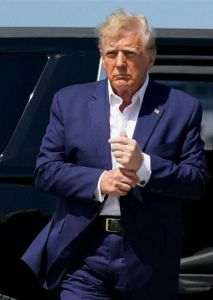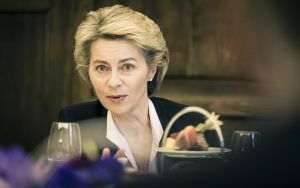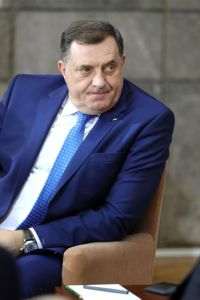The criminal investigations into the financing of Călin Georgescu's presidential campaign seem to be heading in the wrong direction. Although the declassified documents presented at the November 28 meeting of the Supreme Council for National Defense speak of the involvement of state and non-state actors, so far the investigations launched on December 5 by the Prosecutor General's Office and DIICOT have focused on non-state actors: Bogdan Peşchir, Horaţiu Potra and Eugen Sechila. So far, the sources in the two judicial investigations have not leaked to the domestic press any documents referring to the state actors mentioned in the SIE, SRI and Ministry of Interior documents presented at the CSAT meeting.
We do not know if there is evidence to prove a connection between Călin Georgescu or those close to him and state actors, but it is certain that, for a week, police and prosecutors focused on the disturbances that Horaţiu Potra and the 20 gorobeti he was to meet on Sunday, December 8, in Bucharest, could have caused, as well as on the activity of Bogdan Peşchir in the cryptocurrency trading sector.
However, we cannot help but notice that the evidence collected in the Potra case was not very serious in the eyes of the judges, since they rejected the proposal for preventive arrest formulated by the prosecutors, did not even arrest him at home, but placed him under judicial control for the next 60 days.
This entire situation regarding the lack of evidence in the national public space regarding the involvement of state actors could be the effect of the lack of clear information from the Foreign Intelligence Service, which in the CSAT meeting on November 28 presented a two-and-a-half-page report accusing the Russian Federation, without presenting any concrete information in support of the accusation. Moreover, after the presidential elections were annulled on December 6 by the Constitutional Court, Gabriel Vlase, the executive director of the SIE, rushed to leave by private plane for Abu Dhabi, to be in the stands at the Formula 1 race on December 8. Vlase's trips, at state expense, to these sports competitions are not something rare, but a habit, as evidenced by the information presented by G4Media, which noted three such personal trips between September 12 and December 8 by the head of the SIE: Baku, Monza and Abu Dhabi. Exactly in the pre-election period, during the election campaign and during the presidential elections. It seems that for the head of the SIE the involvement of state actors in the campaign of Călin Georgescu did not matter much, since he allowed himself the luxury of flying with a private plane to the respective competitions.
• State actors influenced Georgescu's campaign via Poland and Bulgaria
While the criminal investigation bodies in our country deal with non-state actors, and the head of the SIE seems concerned about the power of Formula 1 engines, new connections are emerging in other member states of the European Union that prove the involvement of the Russian Federation in the presidential election campaign in Romania. Yesterday we presented the investigation of the French daily Le Monde which showed that some of Călin Georgescu's videos were produced and distributed by Ukrainian citizens in an office building located on the banks of the Vistula River, in Warsaw, the capital of Poland, data that Romanian investigators have not yet provided to the public in our country.
The website Euractiv.com reported yesterday that over 50 companies in Plovdiv, Bulgaria, are suspected of having played a key role in manipulating public opinion in Romania during the presidential campaign in favor of candidate Călin Georgescu. The investigation carried out by the BG Elves group reveals direct links between these companies and Russian networks of influence, and their impact is not limited to Romania, but extends to several countries in the region. The cited source shows that the investigation carried out by BG Elves demonstrates the existence of a complex network of Bulgarian companies connected to a Russian digital agency. The investigation reveals that over 50 companies registered in Plovdiv contributed to the online media coverage of Călin Georgescu's presidential campaign and that most of the companies operate in the same economic sector and are owned by a single individual, a Georgian citizen. The investigation started from a series of reports published in Romania, which identified direct links between these companies and strategies to influence public opinion. It seems that these economic entities, although apparently independent, were established with a clear purpose: to support a coordinated campaign of disinformation and propaganda. The companies in Plovdiv allegedly generated online content and ran massive advertising campaigns on social networks. These campaigns had a major impact on the Romanian public, influencing the perception and behavior of the electors. Data collected by BG Elves indicates that the network of companies generated hundreds of millions of impressions on social media every day, and the content was targeted to reach specific segments of the population. The cited source states that a notable aspect of the strategy was the intensity of exposure. Each Romanian citizen was, on average, exposed to content promoted by this network at least 10 times a month. This aggressive tactic was described by investigators as an "information bombardment" aimed at emotional manipulation and influencing the vote.
These activities would not have been possible without substantial financial support, BG Elves claim. They claim that most of the funds come from Russian sources, mainly from the energy sector, well known for its close ties to the Kremlin.
• Călin Georgescu's electoral agents
Domestically, Călin Georgescu benefited greatly from the media coverage provided by priests or high prelates of the Romanian Orthodox Church. The most eloquent case is that of the Archbishop of Tomis, His Eminence Theodosie, who, in an interview for the French daily Le Figaro, described Călin Georgescu as "a messenger of God" and stated that Vladimir Putin is "a man of reconciliation and a builder of churches". These statements generated vehement reactions, given the neutral position assumed by the Romanian Orthodox Church regarding politics and geopolitical conflicts.
The Romanian Patriarchate announced yesterday, through an official statement, that it "firmly distances itself" from the controversial statements made by Teodosie and specified that the Archbishop of Tomis will be investigated during the upcoming session of the Holy Synod for repeated violation of the Synod's decisions regarding involvement in electoral campaigns.
It is certain that the situation surrounding Călin Georgescu has aroused the interest of citizens, which led to an explosion in the audiences of the television stations that discussed it. Thus, according to Kantar Media, between November 24 and December 8, the following increases in prime-time audience on the subject of Călin Georgescu were recorded:
- Realitatea Plus (392.6%)
- Euronews (120%)
- Digi24 (59.6%)
- B1 TV (57.7%)
- Antena 3 CNN (45.4%)
- TVR Info (33.3%)
- Prima News (25%)
- România TV (24%).
We mention that Realitatea Plus and România TV are stations that supported the image that Călin Georgescu created on social networks, as well as the ideas promoted by them, while all other TV stations criticized the way in which the respective presidential candidate acted, with the exception of TVR Info, which maintained a note of impartiality.


















































